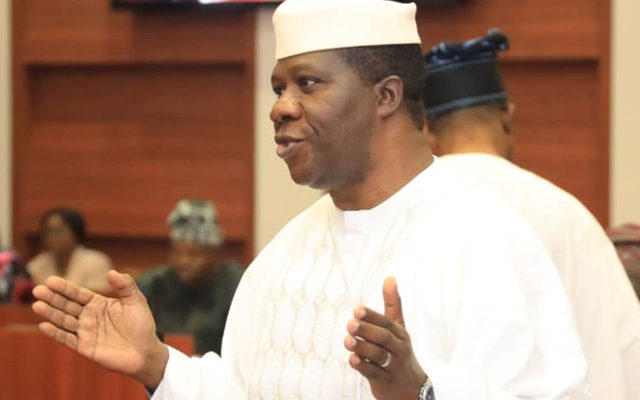As Nigeria commemorates 26 years of uninterrupted democracy, Senate Leader, Senator Opeyemi Bamidele, has used the occasion to reflect on the legislature’s achievements so far and outline its forward-looking agenda.
In a midterm statement released Monday, Bamidele, who represents Ekiti Central, described the milestone as a moment for sober reflection on the gains of democracy, the sacrifices made, and the urgent reforms still required to strengthen governance in Nigeria.
“Reaching this midterm milestone is not just symbolic. It is a call to reflection on our democratic gains, the sacrifices made, and the road still ahead,” Bamidele stated.
Addressing public criticism of the 10th Assembly’s working relationship with the Executive, Bamidele dismissed claims of a “rubber stamp” legislature. He defended the Senate’s collaborative approach, saying it was strategic and results-driven.
“While past assemblies took an adversarial stance that often stalled governance, we have chosen constructive engagement—without surrendering our constitutional independence,” he noted.
According to him, this approach has yielded significant outcomes.
Between June 2023 and June 2025, the National Assembly enacted or amended 108 pieces of legislation, many of which are geared toward improving citizens’ lives and stabilising the economy.
Among key legislative milestones, Bamidele highlighted the passage of the Student Loan (Access to Higher Education) Act, 2024, and the Tax Reform Bills, 2025.
The student loan scheme, operated through NELFUND, has already processed over 1 million applications, with more than 500,000 students receiving tuition and upkeep support—an initiative Bamidele called “a major boost for human capital development.”
On economic reform, he said the tax bills, awaiting presidential assent, are poised to raise Nigeria’s GDP to $1 trillion by 2030, if implemented properly. The reforms, he explained, aim to increase investor confidence, expand the tax net, and reduce dependency on oil revenues.
The Senate leader revealed that the 10th Assembly has witnessed a surge in legislative activity indicating that 983 bills introduced over two sessions (477 in the first, 506 in the second), six per cent increase in bill sponsorship, 232 per cent rise in passed bills, jumping from 25 to 83 within one year as Executive bills passed doubled, from 13 to 26.
In terms of oversight, he noted that Petitions handled grew from 50 to 80 in one year, adding that the Senate confirmed 215 executive appointments in its first session.
“Performance in the legislature goes beyond numbers—it’s about impact, oversight, and responding to citizens,” Bamidele stressed.
Looking to the future, Bamidele outlined a bold reform agenda that includes stabilising the fiscal and monetary environment, securing lives, property, and public infrastructure, and tackling inflation and improving national productivity.
He emphasised the urgency of constitutional reform, describing it as essential to correcting structural imbalances in the federation.
He disclosed that the zonal public hearings by the Constitution Review Committee would commence soon and promised an inclusive and participatory process.
“We must build a political structure that reflects our national aspirations and safeguards our democracy,” Bamidele said.
He reaffirmed the Senate’s commitment to entrenching democratic values, ensuring responsive governance, and achieving sustainable development goals.
“We are ready for the road ahead—and we invite all Nigerians to walk it with us,” he concluded.







